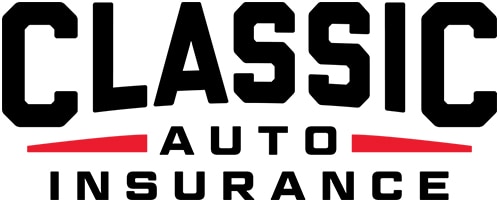Shopping for a classic car is a fun process, but it does come with certain financial risks, especially if you’re browsing for vehicles online. Not every classic car is worth purchasing, and some older vehicles can come with an abundance of body or mechanical issues that make them more trouble than they’re worth.
If you’re considering purchasing a classic car, you need to order a pre-purchase inspection. Pre-purchase car inspections offer professional assessments of vehicles to determine a car’s worth, and they can also give you the peace of mind that you’re investing in a car that you can enjoy for years to come.
Mechanics and auto technicians can perform pre-purchase inspections, but you may be better off finding a classic car specialist to evaluate the vehicle. Additionally, the classic car specialist should have experience with your specific type of classic car, such as a muscle or luxury vehicle.
In this blog, we discuss five critical assessments you need to include in your pre-purchase classic car inspection.
Body Panels
The first thing a mechanic or classic car specialist will evaluate is a vehicle’s exterior. They’ll check and see if the vehicle has any signs of damage or if the exterior requires repair. The person conducting the inspection will likely check for:
- The quality of the paint finish
- Any gaps between body panels, which could suggest that the vehicle has frame damage
- Any scratches, rust, discoloration, blemishes, or dents in the body
- The overall quality of the undercarriage’s frames and subframes
- The underbody’s panels, guards, floor pan, trunk pan, and plates
Tires
Classic car inspectors will survey the quality of the vehicle’s tires to determine whether you can continue using them or need replacements. They’ll look for signs of wear as well as evaluate the tire’s treads. Classic car tires require at least one-third of an inch of tread for them to be considered usable.
Another important factor in evaluating a classic car’s tires is whether the vehicle has suspension issues. A car with uneven treads can indicate that the vehicle has suspension problems.
Interior Parts
Classic car inspectors will evaluate the condition of the vehicle’s interior parts and components, and they’ll check to make sure the vehicle still has all of its components.
Firstly, they’ll determine if the seats are comfortable or if they’ve become dry and hardened over time. Next, they’ll check to see if the headliner is firm and staying in place properly. Old, worn-out headliners may begin to sink. The inspector should also check to see if the carpet is worn out. The vehicle inspector also needs to survey the vehicle’s glass in case there’s any non-obvious chipping or breaks, and they should also check for cracks and scratches in the vehicle’s dashboard. Finally, the inspector needs to check for any signs of water damage in the car’s trunk.
Additionally, the inspector should check for signs of mold and mildew. Mold problems are incredibly common with classic cars because the vehicle may have experienced periods of neglect.
Mechanicals
After surveying the vehicle’s exterior and interior, the inspector should look at the vehicle’s overall technical quality. They’ll evaluate the vehicle’s battery, engine, wiring, and additional technical components. During the mechanical analysis stage, the classic car inspector should check:
- The brakes and drivetrain
- Any leaks in the engine, carburetor, or valve cover
- Any suspension issues
- Hose and belt quality
- The functionality of electrical components
- Fluid levels
Overall Performance
After evaluating the exterior, interior, and mechanical components of the classic vehicle, the inspector should test the vehicle’s overall performance quality. They should drive the vehicle around and look for any potential issues with the transmission, engine, or brakes. The test-drive stage of the pre-purchase inspection is also critical for determining:
- Whether the vehicle starts consistently
- If the engine runs smoothly.
- Whether the gears shift without issues
- Whether the vehicle’s steering functions properly
Protect Your Purchase
Once you’ve determined that a classic car is right for you and it passes the pre-purchase inspection, you need the best insurance coverage available to protect your investment. Classic Auto Insurance offers car enthusiasts robust and affordable insurance that’s perfect for protecting your classic beauty. Our insurance coverage also provides unique benefits like agreed-upon value, inflation guard, and nationwide roadside assistance with flatbed towing.
To learn more about why Classic Auto Insurance is right for your vehicle, call our car experts at 888-901-1338, or you can get an instant quote here.

